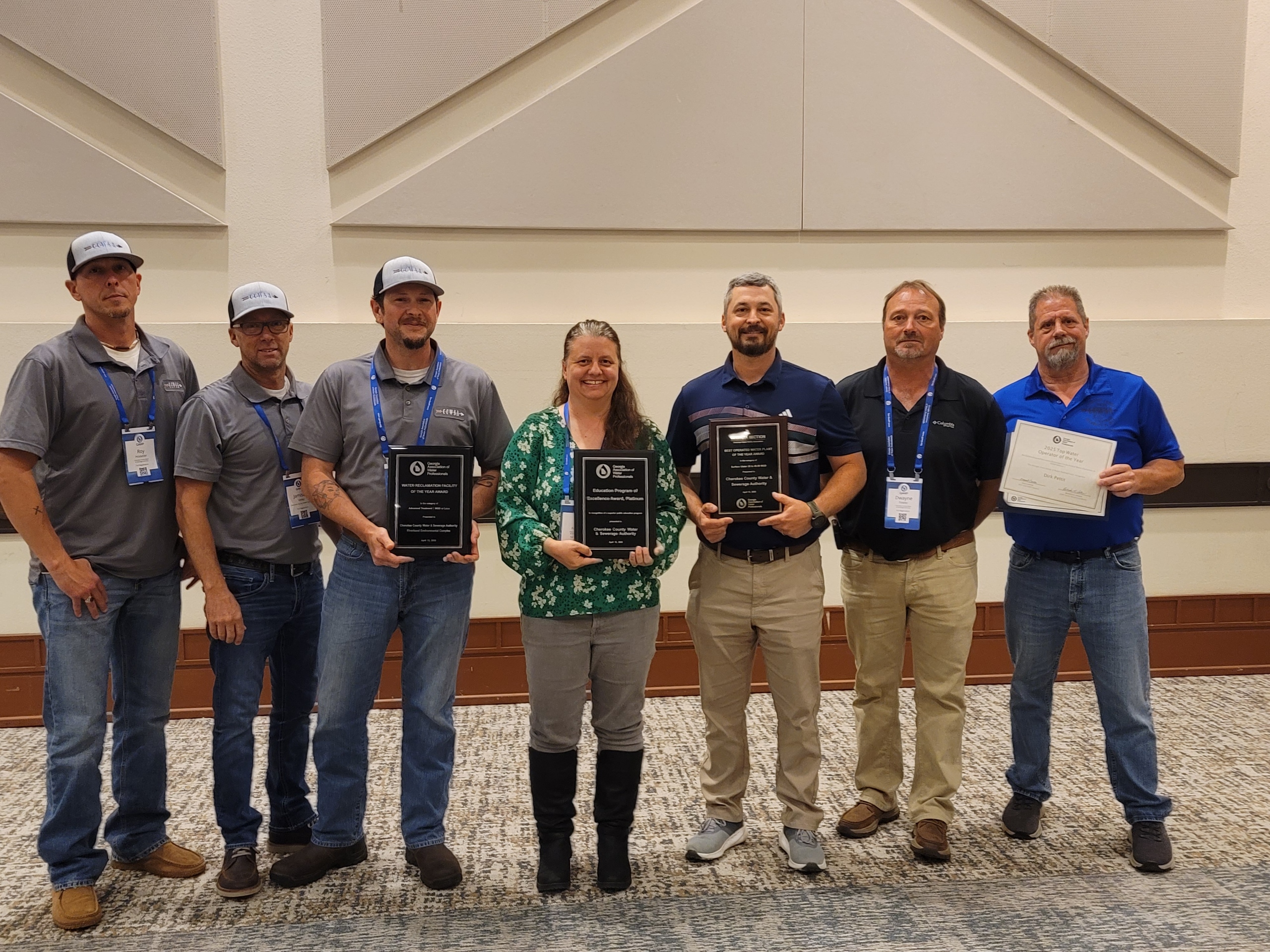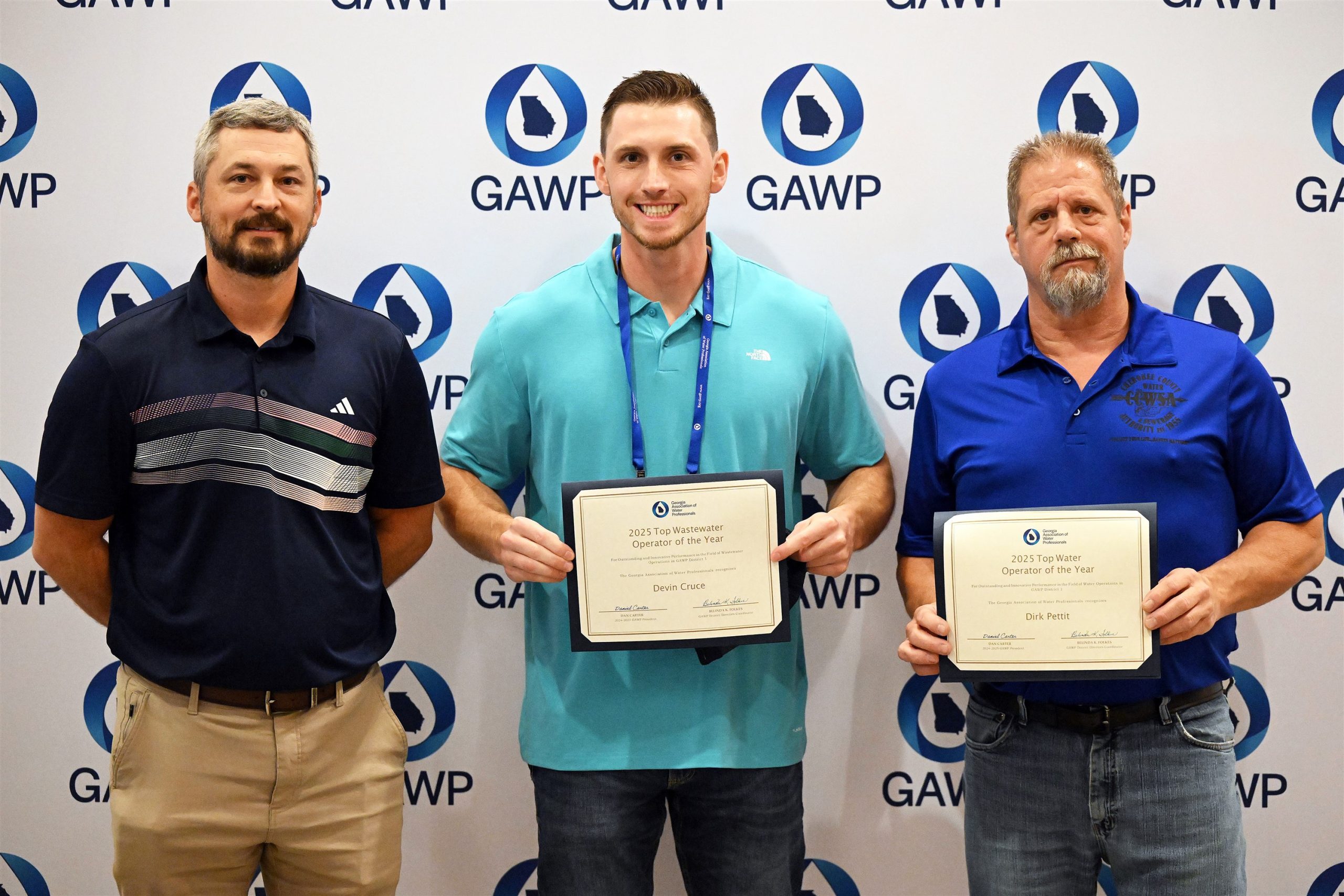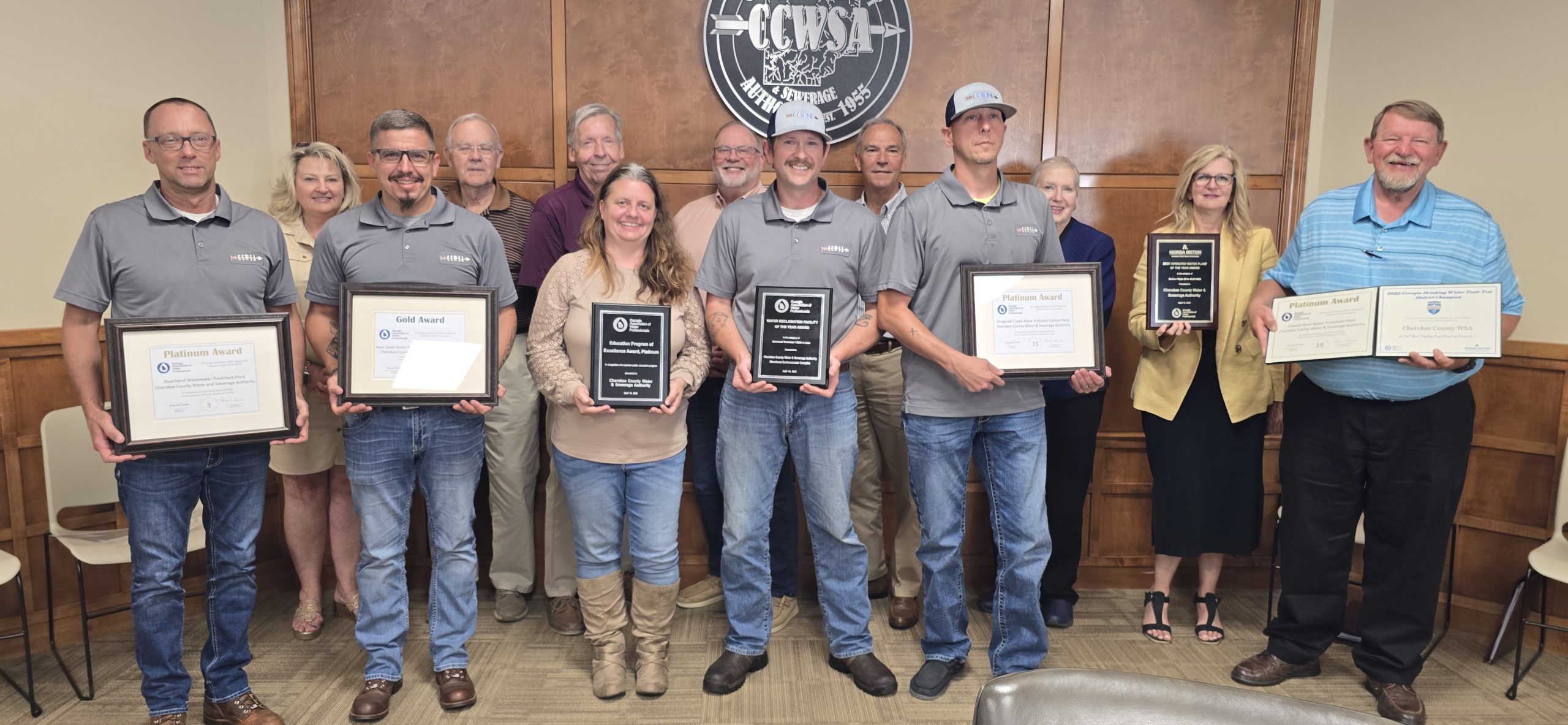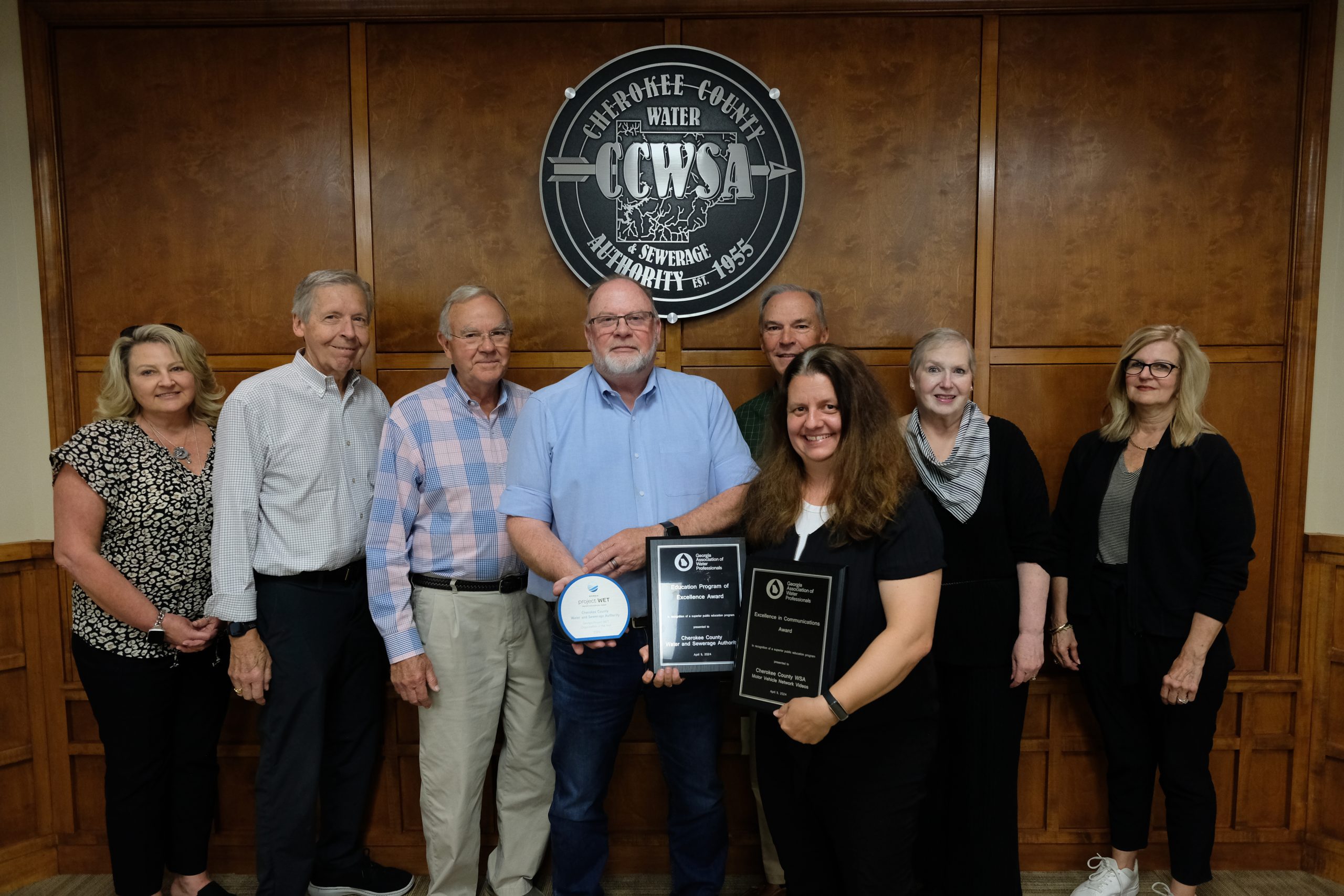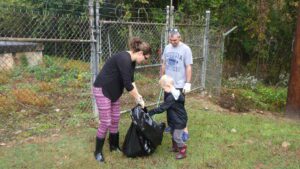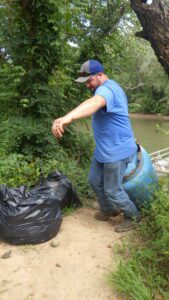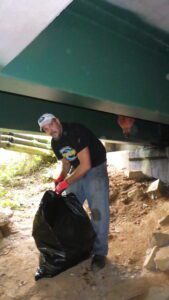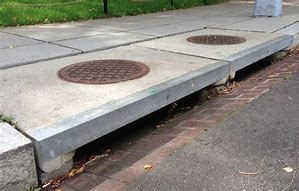
Cherokee County Water and Sewerage Authority (CCWSA) kicks off Drinking Water Week by celebrating tap water is “There When You Need It”
CCWSA kicked off Drinking Water Week by encouraging consumers to recognize their tap water is “There When You Need It”. Drinking Water Week is May 3-9 this year. CCWSA and the American Water Works Association (AWWA) will observe Drinking Water Week by recognizing the vital role tap water plays in daily life, the infrastructure that is required to carry it to and from homes and businesses, and the important work of water professionals “behind the scenes”. “With so much changing around us nowadays, it is comforting to know that our tap water is readily available for hygienic and drinking purposes,” said AWWA CEO David LaFrance. “Even during the coronavirus pandemic, water professionals across North America continue to report to work to collect, treat and distribute water to ensure the health and safety of their communities.” To commemorate the week, water utilities, water organizations, government entities, environmental advocates, schools and other stakeholders throughout North America and beyond will encourage consumers to understand and appreciate their drinking water.
CCWSA recognizes the importance of water infrastructure during Drinking Water Week
CCWSA recognizes the infrastructure that helps to transport water from collection to treatment to consumption is “There When You Need It” during Drinking Water Week. Drinking Water Week is May 3-9 this year. [Insert organization’s name] and the American Water Works Association (AWWA) will observe Drinking Water Week by recognizing the vital role tap water plays in daily life, the infrastructure that is required to carry it to and from homes and businesses, and the important work of water professionals “behind the scenes”. “Our tap water plays a vital role in keeping each of us healthy and safe during the coronavirus pandemic,” said AWWA CEO David LaFrance. “It is important to recognize the critical role water infrastructure plays, every day, in ensuring our tap water is there when you need it for drinking, cooking, or hygiene.”
High-quality water is “There When You Need It”
Throughout the coronavirus pandemic, the U.S. Environmental Protection Agency (EPA) and the U.S. Centers for Disease Control and Prevention (CDC) has assured consumers that drinking water was safe to use as normal. The consistent and reliable quality of drinking water is at the heart of the theme for this year’s Drinking Water Week, “There When You Need It” which will be held May 3-9 this year. Cherokee County Water and Sewerage Authority (CCWSA) and the American Water Works Association (AWWA) will observe Drinking Water Week by recognizing the vital role tap water plays in daily life, the infrastructure that is required to carry it to and from homes and businesses, and the important work of water professionals “behind the scenes”. Many communities are fortunate to have reliable access to safe water when they turn on the tap. In large part, this stems from the regular testing CCWSA is subject to ensure that regulatory standards for water quality are met. In fact, every water system must publish a Consumer Confidence Report (CCR), which details its water quality. You can find CCWSA’s CCR’s that go back to 2005 at ccwsa.com under the Our Water tab. “Shortly after the World Health Organization declared the coronavirus a pandemic, the EPA and CDC each reminded us that we should trust our tap water as we normally would for hygiene and hydration,” said AWWA CEO David LaFrance. “This proved to be extremely important because handwashing is an important way to stop the spread of the virus. We couldn’t do that without high-quality drinking water.”
CCWSA commends water professionals during Drinking Water Week
CCWSA commends the hardworking men and women ensuring tap water is “There When You Need It” during Drinking Water Week which will be held May 3-9 this year. CCWSA and the American Water Works Association (AWWA) will observe Drinking Water Week by recognizing the vital role tap water plays in daily life, the infrastructure that is required to carry it to and from homes and businesses, and the important work of water professionals “behind the scenes”. Reliable water service used for hygiene, hydration, and cooking is critical to our health and safety throughout the COVID-19 pandemic. At the beginning of the pandemic, several health organizations recommended normal hygienic practices, including handwashing for 20 seconds, which would play an important role in slowing the spread of the coronavirus. “During these difficult times, we reflect on the heroic work of health professionals and first responders who place themselves in harm’s way to keep us all healthy and safe,” said AWWA President Jim Williams. “I’ve referred to the water profession as a “vocation of distinction” before. In these difficult times, it is also a vocation of heroism.”
Drinking Water Week activities include:
- EnviroScape presentations: Due to continued social distancing we will be doing the Water/Wastewater Process Enviroscape Presentation through video – https://www.youtube.com/watch?v=CDaiYZyVdN8
- Water Plant Operations information: We were initially offering water plant tours but due to continued social distancing we have had to cancel. Here are two great videos that explain Water Treatment Plants and Water Towers. Tours will be available in the future.
*How do Water Towers work? https://www.youtube.com/watch?v=yZwfcMSDBHs&t=80s
*How do Water Treatment Plants Work? https://www.youtube.com/watch?v=0_ZcCqqpS2o
- Coloring Contest: Coloring contest sheets for students grades K-3rd can be obtained here and dropped off at the drive-through/dropbox at our main office – (140 W. Main Street) or just take a photo of the completed coloring picture and e-mail it to lori.forrester@ccwsa.com with students name/grade. One or more lucky winner(s) will be selected to win a $10 ice-cream gift card. The deadline to turn the coloring sheets is May 11th.
